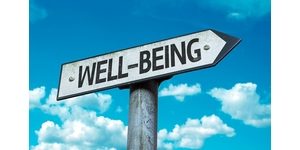The Bar Assistance Program (BAP) began on April 1. An aim of BAP is to assist lawyers and judges with behavioral health issues.
There haven’t been many referrals. I suppose some might view that as a good thing. Alas, given the informal inquiries I receive, it’s clear to me that many continue to struggle with stress, anxiety, and burnout. If you are among the many, reach out. We are here to help.
And, while I doubt you’ll ever find BAP on Yelp or Google, I’m here to share a positive review!
Through the end of August, I’d heard from a handful of lawyers who wanted guidance or resources, but not from any who wanted to participate in a more structured form of assistance. Nor had Screening Counsel or Disciplinary Counsel referred to BAP a disciplinary complaint that revealed or was rooted in a behavioral health issue.
Then, in early September, a lawyer contacted me. The lawyer reported levels of stress, anxiety, and burnout that had the lawyer considering whether to quit the profession. After I explained what BAP can and cannot do, the lawyer asked me to set up meeting with an assistance panel. Three days later, the lawyer met via Zoom with me and two lawyers who volunteer in BAP.
I started the meeting by commending the lawyer for reaching out. Each volunteer did the same. It takes a ton of courage to ask for help.
Then, the lawyer shared with us a perfect storm of personal and professional challenges that, over the past year, have relentlessly attacked the lawyer’s sense of self, self-worth, and worth as an attorney. To be very clear, challenges above and beyond those that are common to all practitioners, and challenges that I’m quite sure would’ve defeated me. I found the lawyer’s strength inspiring: both in confronting the challenges and in expressing vulnerability to them.
In return, the panel members and I shared thoughts, experiences, and resources. Our focus was that the lawyer is not alone, that it is okay to seek help, and that the lawyer is not an impostor.[1] The lawyer intends to follow-up with one of the panel members to discuss a challenge common to their shared practice area. In that sense, perhaps a mentorship was formed.
Today, I called the lawyer to check in. Despite yet another setback that is outside the norm, the lawyer is doing okay. Challenges remain, but the lawyer is ready to take them on. Then, the lawyer thanked me. Specifically – and I have the lawyer’s permission to share this – the lawyer told me that mentors had often left the lawyer fearing “judgement,” a fear that caused the lawyer to engage in “approval seeking behavior” that wasn’t helpful or healthy. The lawyer told me the BAP experience wasn’t like that at all. That it was supportive and “freeing.”
I shared the lawyer’s comments with one of the volunteer panel members. The volunteer attorney said something that struck me. I don’t have the volunteer’s exact quote, but it was essentially this: “sometimes people who are supposed to help think their job is to tell people what to do. No. Our role begins with listening.”
BAP is here. It’s okay to reach out.
We will listen and we will support you.

[1] I have several posts and videos that touch upon “Impostor Syndrome.” Including this post, this video, and this video.
Previous Wellness Wednesday Posts
Wellness Wednesday: Set communication boundaries with clients and opposing counsel
Wellness Wednesday: Compassion Fatigue
Wellness Wednesday: A message from Justice Eaton
Jessica Burke: “Well People Do”
Wellness Wednesday: Schitt$ Creek and Paddles
Wellness Wednesday: Be Kind to Lawyers
Civility Matters. Especially Now.
Coping with COVID-19 Related Stress & Anxiety
Well-Being is an Aspect of Competence
Wellness Wednesday: Survival Skills
Wellness Wednesday: Make time for what (and who) matters
Wellness Wednesday: Risk & Response (this one is about the report I mentioned from the Virginia State Bar)
Wellness Wednesday: Meet Alison, Shireen, Samantha, and Alison
Wellness Wednesday: Mentor Someone
Wellness Wednesday: Joan Loring Wing
Wellness Wednesday: Law Day & Pro Bono
Attorney Wellness: We’ve Only Just Begun
Wellness Wednesday: Meet Molly Gray
Wellness Wednesday: Judge Garland & My Cousin Vinny
Shakespeare, Pink Floyd and Wellness
Wellness Wednesday: You are not an impostor
Wellness Wednesday: “N O” is “O K”
Wellness Wednesday: Meet Jeff Messina
Lawyers Helping Lawyers Part 2
Lawyers Helping Lawyers: Keep it on the front burner
Lawyer Well-Being: a call to action
Anxiety, Stress & Work-Life Balance for Lawyers
Lawyer Wellness: resolve to find 6 minutes for yourself
A pledge by legal employers to focus on lawyer well-being
Legal Ethics & the Water Cooler
Wellness Wednesday: Island Vines
Wellness Wednesday: on ponds, puffery and paltering
Wellness Wednesday: Neil Diamond, the Lock Screen, and National Mental Health Day for Law Students










